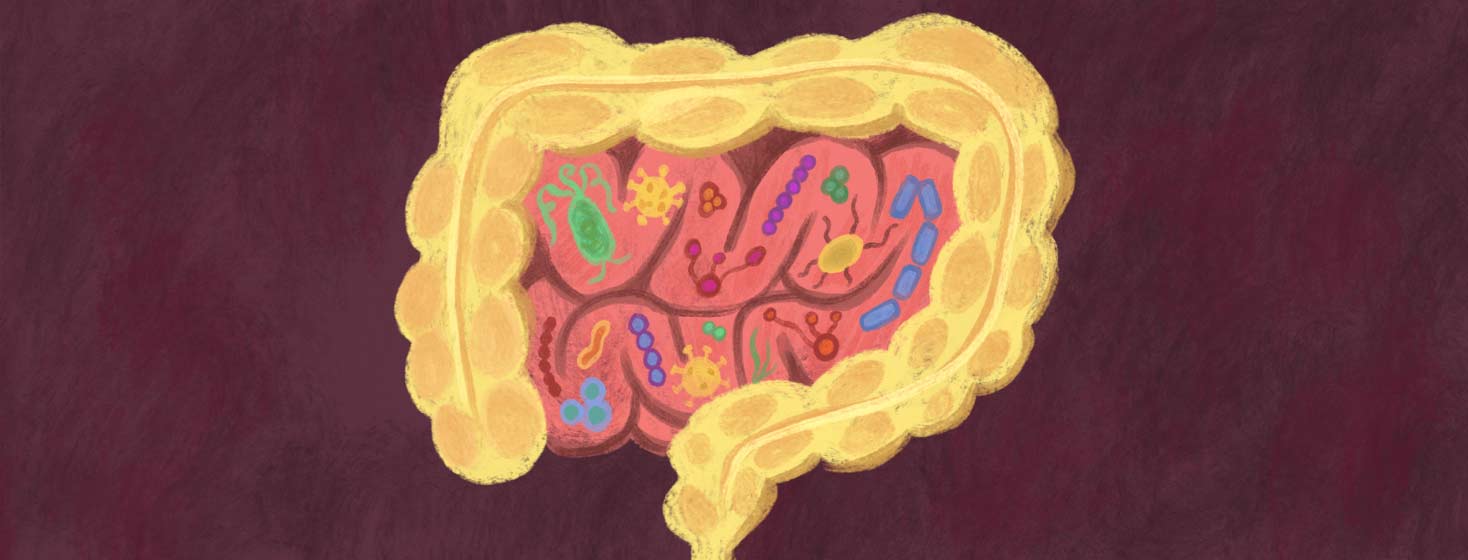Small Intestinal Bacterial Overgrowth (SIBO) in CF
Approximately 30-40% of people with CF have a GI complication called Small Intestinal Bacterial Overgrowth (SIBO). Although SIBO isn’t generally talked about a lot in the CF community, it is a common complication for many people that affects digestion and can lead to uncomfortable GI side effects.
Find out what SIBO is and how to treat it by reading below!
Effect of CF on the intestine
The CFTR membrane is found in epithelial cells all over the body including in the lungs, sinuses, reproductive tracts, and intestines.1 In the intestines, improper CFTR function causes thick and sticky mucus to line the walls of the intestines trapping bacteria and increasing inflammation.1
When the balance of beneficial host bacteria and pathogenic bacteria becomes disrupted SIBO can occur. In comparison to the general population, the use of low-dose Azithromycin in people with CF increases the risk of SIBO occurring.2
Symptoms of SIBO
Because the symptoms of SIBO overlap and are similar to general GI symptoms of CF, it can be a challenge to distinguish SIBO. Some of the subtle symptoms of SIBO can include the following:1
- Diarrhea
- Abdominal pain
- Bloating
- Flatulence
- Weight loss
In addition, some people with SIBO experience Vitamin D and B12 deficiency and anemia due to malabsorption and malnutrition. If your GI symptoms are not improved with typical CF GI care, SIBO may be the culprit and you should contact your doctor.
How is SIBO diagnosed?
Often, SIBO can be tough to diagnose in the setting of CF where GI issues are common. There is a direct, but more invasive, way to test for SIBO through the use of endoscopic aspiration.1
In endoscopic aspiration, a flexible tube with a camera on the end is inserted down the throat into the stomach where samples and biopsies are taken and then tested to measure bacterial growth. Samples with more than 10 colony-forming units/1 mL in intestinal sampled fluid are considered SIBO.1
Another less invasive method to diagnose SIBO is through Glucose Breath Testing.3 Breath testing is a painless and easy test used to measure the amount of exhaled gases due to fermentation from bacteria on the breath.1 It’s an indirect way to measure the amount of bacterial growth in the gut.
Treatment of SIBO
The treatment of SIBO is fairly straightforward and simple to tackle the overgrowth of bacteria. A short course of antibiotics such as doxycycline or rifaximin for 10 to 14 days is the first line of treatment.1
Additionally, an antibiotic schedule of 14 days on antibiotics followed by 14 days off until symptoms resolve is recommended for longer courses of treatment.1 Lastly, the use of laxatives to increase bowel motility can be used to help symptoms resolve.
Although SIBO isn’t a well talked about complication in the CF community, it is very common.
Have you or a loved one dealt with SIBO?

Join the conversation